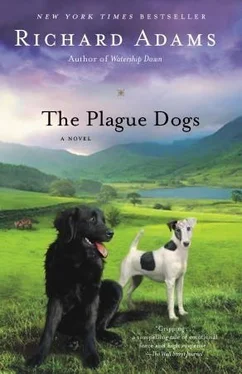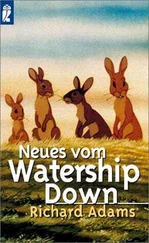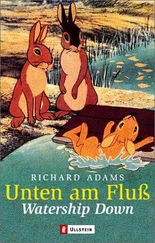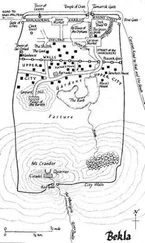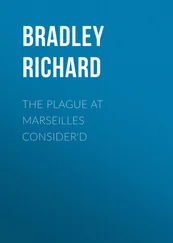Richard Adams - The Plague Dogs
Здесь есть возможность читать онлайн «Richard Adams - The Plague Dogs» весь текст электронной книги совершенно бесплатно (целиком полную версию без сокращений). В некоторых случаях можно слушать аудио, скачать через торрент в формате fb2 и присутствует краткое содержание. Город: New York, Год выпуска: 2007, ISBN: 2007, Издательство: Ballantine Books, Жанр: Природа и животные, Фэнтези, на английском языке. Описание произведения, (предисловие) а так же отзывы посетителей доступны на портале библиотеки ЛибКат.
- Название:The Plague Dogs
- Автор:
- Издательство:Ballantine Books
- Жанр:
- Год:2007
- Город:New York
- ISBN:978-0-345-49402-3
- Рейтинг книги:3 / 5. Голосов: 1
-
Избранное:Добавить в избранное
- Отзывы:
-
Ваша оценка:
- 60
- 1
- 2
- 3
- 4
- 5
The Plague Dogs: краткое содержание, описание и аннотация
Предлагаем к чтению аннотацию, описание, краткое содержание или предисловие (зависит от того, что написал сам автор книги «The Plague Dogs»). Если вы не нашли необходимую информацию о книге — напишите в комментариях, мы постараемся отыскать её.
, Richard Adams creates a lyrical and engrossing tale, a remarkable journey into the hearts and minds of two canine heroes, Snitter and Rowf, fugitives from the horrors of an animal research center who escape into the isolation—and terror—of the wilderness.
The Plague Dogs — читать онлайн бесплатно полную книгу (весь текст) целиком
Ниже представлен текст книги, разбитый по страницам. Система сохранения места последней прочитанной страницы, позволяет с удобством читать онлайн бесплатно книгу «The Plague Dogs», без необходимости каждый раз заново искать на чём Вы остановились. Поставьте закладку, и сможете в любой момент перейти на страницу, на которой закончили чтение.
Интервал:
Закладка:
“Right, that’ll do,” said Dr. Boycott briskly. “Now the usual tests, please, Stephen—pulse, blood sample, body temperature, reflexes—the various things we’ve been working on—and then plot the graphs. I’ll be back in about twenty minutes. I’m just going over to the Christiaan Barnard block to learn what I can about this afternoon’s brain surgery work. And please don’t smoke while I’m gone,” he added, mildly but firmly. “You’ll appreciate that that could have an effect on results.”
“All right to put its muzzle on, chief?” asked Mr. Powell. “Only this one, seven-three-two, ’s been known to be a right sod at times and it might come round enough to start in on me—sudden-like, you know.”
“Yes, there’s no objection to that,” replied Dr. Boycott, picking up the stop-watch.
“And the time, chief?” enquired Mr. Powell in a rather sycophantic tone, as though the time were likely to be something to Dr. Boycott’s personal credit.
“Two hours, twenty minutes, fifty-three and two fifths seconds,” answered Dr. Boycott. “Without looking at the papers, I think that’s about six and a half minutes longer than Wednesday’s test and about twelve minutes longer than the test before that. It’s rather remarkable how regular the increase appears to be. At this rate the graph will work out as a straight incline, although obviously we must reach a diminution somewhere. There must come a point where the additional endurance induced by the dog’s expectation of removal is counterbalanced by the limits of its physical capacity.”
He paused for a moment and then said, “Now, there’s another thing I’d like you to see to, please. I forgot to mention it this morning, but Cambridge are anxious for us to go ahead at once with the social deprivation experiment. We have a monkey set aside for that, haven’t we?”
“Yeah, I’m pretty certain we have,” replied Mr. Powell.
“I thought you told me we definitely had?” Dr. Boycott’s voice was a shade sharper.
“Yes, that’s right,” said Mr. Powell hastily. “We have.”
“Good. Well, it can go into the cylinder this evening. Now you’re sure that that cylinder excludes all light?”
“Yep. No light, restricted movement, adequate ventilation, wire mesh floor, faeces and urine fall through. It’s all checked.”
“Right, well, start it off, keep it under twice daily observation and, of course, mark the particulars up in a log. The total number of days should be kept up to date day by day, on a slate beside the cylinder. That’s a matter of courtesy to the Director. He’ll probably want to see it.”
“Where’s it to be kept, chief?” asked Mr. Powell.
“It doesn’t matter, as long as it’s somewhere where you can readily keep an eye on it,” answered Dr. Boycott. “I suggest, near where you normally work, as long as it’s not anywhere near any other animals. There should be silence, as far as possible, and no organic smells, of course. That’s part of the deprivation, you understand.”
“How about the balance-cupboard in Lab. 4, chief?” asked Mr. Powell. “Plenty of space in there at the moment and quiet as the grave.”
“Yes, that’ll do,” said Dr. Boycott. “Don’t forget to tell Tyson about feeding, and keep me informed how it goes on. We’ll aim at—well, say—er—forty-five days.”
“Is that the lot, chief?”
“Yes,” said Dr. Boycott, with his hand on the door. “But since it seems necessary to mention it, you’d better see that this tank’s cleaned out. There’s silt on the bottom which shouldn’t be there.”
It was only after a considerable administrative and political battle that the site for Animal Research, Surgical and Experimental (A.R.S.E.), had been approved at Lawson Park, a former fell farm on the east side of Coniston Water. As a Departmental project the scheme had, of course, attracted deemed planning permission, but following Circular 100 consultation both the County Council and the Lakeland National Park Planning Board had objected to it so strongly that the responsible Under Secretary at the Department of the Environment (having, no doubt, a vivid mental picture of himself in the chair at any confrontation discussions that might be arranged to try to resolve the matter in Whitehall) had taken very little time to decide that in all the circumstances a public local inquiry would be the most appropriate course. The inquiry had lasted for two weeks and at various times during the proceedings the Inspector (who in his private hours indulged a taste for seventeenth-century English history) had found himself wishing that, like that Mr. Bradshaw who presided at the so-called trial of King Charles I, he had been provided with a bullet-proof hat. The deputy county clerk had cross-examined the Ministry experts with brilliant penetration on the precise extent of the urgency and need to site yet another Government project in a national park. The Secretary of the Countryside Commission, subpoenaed by the Planning Board, had been virtually compelled to give evidence against the Department into which he was hoping to be promoted to Under Secretary. The Council for the Protection of Rural England had greatly assisted the case in favour of the project by testifying with passionate emotion that nobody ought to be allowed to build anything anywhere any more. A Mr. Finward, a retired merchant naval officer, who occupied a cottage on the fell not far from the site, had threatened the Inspector with bodily injury unless he undertook to report against the proposal. And a Mr. Prancebody, who testified amongst other things that he had discovered the truth of the British Israelite theory while exploring the Derbyshire caves, had read in evidence most of a sixty-three-page submission, before the long-suffering Inspector had ruled it to be irrelevant and inadmissible and Mr. Prancebody, violently objecting, had been somewhat eponymously removed by the police. There was, in fact, scarcely a dull moment throughout the proceedings. Of particular interest had been the evidence of the R.S.P.C.A., who were emphatic that they favoured the scheme, on the grounds that the experiments and surgery would redound to the benefit of animals in general.
After the inquiry the Inspector, pressed by the Deputy Secretary of the Department to complete his publishable report as quickly as possible (regardless of whatever length of time he might need to make a good job of it), had recommended against planning approval for the site at Lawson Park and consequently against the compulsory purchase order on the property. The Secretary of State, the Right Hon. William Harbottle (known to his Departmental civil servants as “Hot Bottle Bill” on account of his chronically cold feet), had succeeded in getting the matter up to Cabinet Committee, following which a decision to approve against the Inspector’s recommendation had been traded with the Home Secretary and the Minister of Labour, sub rosa , for agreement to a new open prison in Worcestershire, the head of the Chief Alkali Inspector on a charger and the tail of a young lady named Miss Mandy Pryce-Morgan, who was currently dispensing her favours to certain of the Front Bench.

Upon the announcement of the Secretary of State’s decision, public reaction had been generally adverse. Under fire, Hot Bottle Bill had stood his ground like a good ’un, manfully ensuring that the Parliamentary attacks were invariably answered by one of his junior colleagues, Mr. Basil Forbes (otherwise known as Errol the Peril, on account of his unpredictable imprudence). Eventually brought to bay by Mr. Bernard Bugwash, Q.C., the Member for Lakeland Central, he had, on the night, brilliantly contrived to be unavoidably absent and Errol the Peril had spoken for six minutes flat. The next morning a much better stick with which to beat the Government had appeared in the form of the report of the Sablon Committee, which recommended that more public money ought to be spent on medical research. Since the Government, keen to reduce public expenditure, were reluctant to accept this recommendation, the Opposition had naturally supported it: and since support for Sablon was virtually incompatible with any further attack on the Lawson Park decision, it was generally conceded that Hot Bottle Bill had contrived to survive yet another cliff-hanging instalment of his career. Lawson Park passed into Government hands; and the celebrated firm of architects, Sir Conham Goode, Son and Howe, were commissioned to design the buildings.
Читать дальшеИнтервал:
Закладка:
Похожие книги на «The Plague Dogs»
Представляем Вашему вниманию похожие книги на «The Plague Dogs» списком для выбора. Мы отобрали схожую по названию и смыслу литературу в надежде предоставить читателям больше вариантов отыскать новые, интересные, ещё непрочитанные произведения.
Обсуждение, отзывы о книге «The Plague Dogs» и просто собственные мнения читателей. Оставьте ваши комментарии, напишите, что Вы думаете о произведении, его смысле или главных героях. Укажите что конкретно понравилось, а что нет, и почему Вы так считаете.
